By Sophie Arthur
November 17, 2020
Time to read: 8 minutes
By Katy Pallister
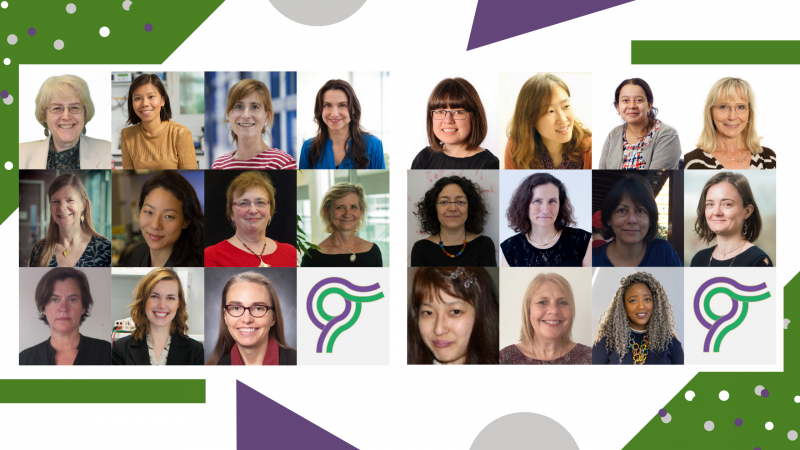
A year like no other made for an unconventional Suffrage Science awards night. Two handovers of the scheme, which celebrates and inspires women in science, were marked in a virtual event with guests attending from the comfort of their home. The sixth ‘life sciences’ and third ‘maths and computing’ ceremonies may not have taken place in a grand venue, but the hopeful energy of the night transpired through everyone’s computer screens.
Eleven women from the ‘life sciences’, and eleven women from ‘maths and computing’ were nominated by their peers to receive a Suffrage Science award for their outstanding scientific research, communication work, and support of women in STEM. Although the heirloom jewellery could not be physically passed from the current holder to the new recipient, the occasion was recognised by an online handover on Friday 6 November, 2020.
All dressed up with nowhere to go, host Dr Kat Arney kicked off proceedings with a tray of homemade canapés and an effervescent welcome. “We’re so sorry that we can’t be with you in person, but there are a few advantages to having an online ceremony,” Kat said. “I will admit that I haven’t put on a pair of tights since March, and tonight has not changed that.”
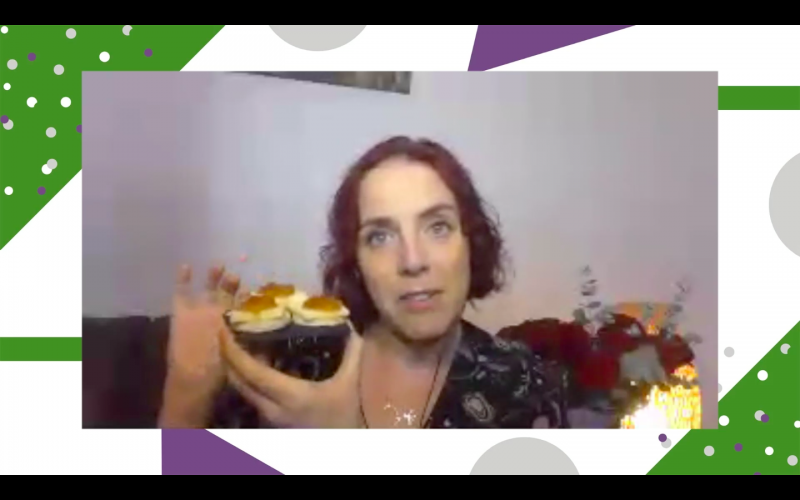
Next to take the stage were the life sciences 2018 award holders and 2020 award recipients. In a video premiere, we heard these women share their reasons for nomination, the significance of the awards, and their hopes for the future of women in STEM.
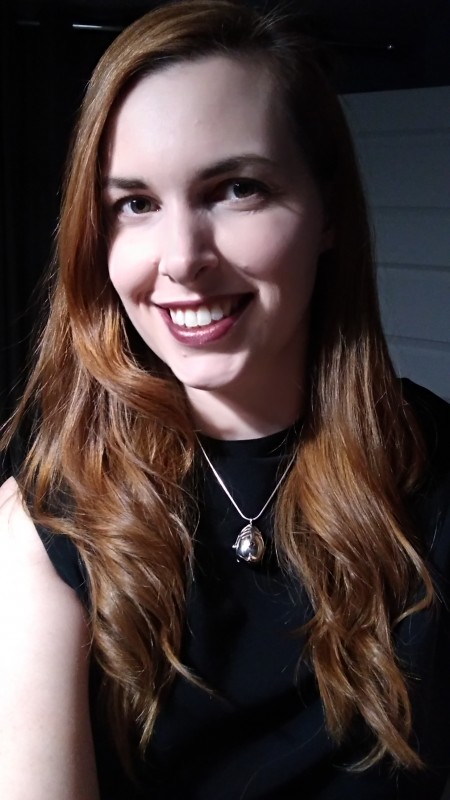
“I’d like to build on the foundations of the #MeToo movement to ostracise the pervasive misogyny that is still present in science,” 2020 awardee Professor Elspeth Garman of the University of Oxford said in her clip.
“I have a passion for both research and for improving the research culture. I strongly believe that you can be dedicated to both pursuits, so I’m very excited about an award that recognises this dedication,” 2020 awardee Dr Veronique Miron of the University of Edinburgh remarked.
“I chose Dr Kelly Nguyen (MRC Laboratory of Molecular Biology) for the Suffrage Science award because I think that she has this very unique combination of tenacity, rigour and optimism that makes her a force to be reckoned with in science, and in particular structural biology,” 2018 awardee Professor Rebecca Voorhees of the California Institute of Technology explained.
Having travelled all over the globe to ‘see’ the life sciences awardees, we landed back in the UK to continue the conversations with a live panel discussion. Maths and computing awardee 2020 and CEO of STEMettes, Dr Anne-Marie Imafidon MBE, founder of Girls in Science, Lakechia Jeanne, and life sciences awardee 2014, cell biologist and novelist, Dr Jennifer Rohn, joined Kat to reflect on some of the key themes of 2020 and share points of action.
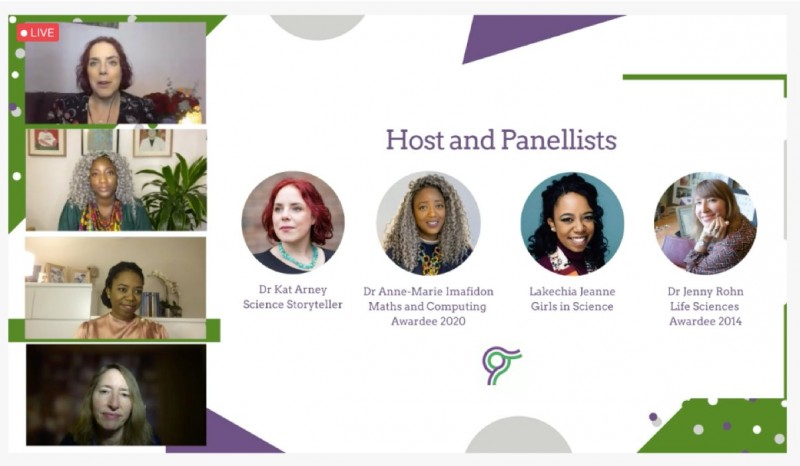
“The COVID-19 pandemic has felt like an accelerator and a magnifier…of the issues that are affecting us, and particularly for women,” Kat began.
“What has been most distressing is the data coming out that shows that the COVID-19 pandemic has disproportionately affected women in science,” Jenny continued. “Their publication records, their job prospects… it’s probably to do with the fact that most of the caregiving was done by women during this time…taking a hit now will have a long-term effect for many women, I think.”
Kat also cited emerging data which shows that female experts have been called on less to give comments on COVID-19. “Females need to be established as figures of authority in every area,” Lakechia responded, “especially in an area such as science, where representation is dismal right now… You don’t want women to take the back seat at a time when all opinions need to be accounted for.”
Another big theme of 2020 has been diversity, and the Black Lives Matter movement, but how has this manifested itself so far in society and science? “What I’m seeing is there is discussion, which has then led to almost paralysis,” Anne-Marie said. “People are reading books… and are ‘academically taking it on’ but then that next step of ‘do something’ – we’re not seeing as much… Right now, there are more women in Suffrage Science than there are black female professors in the UK…there’s a lot more action that needs to be done.”
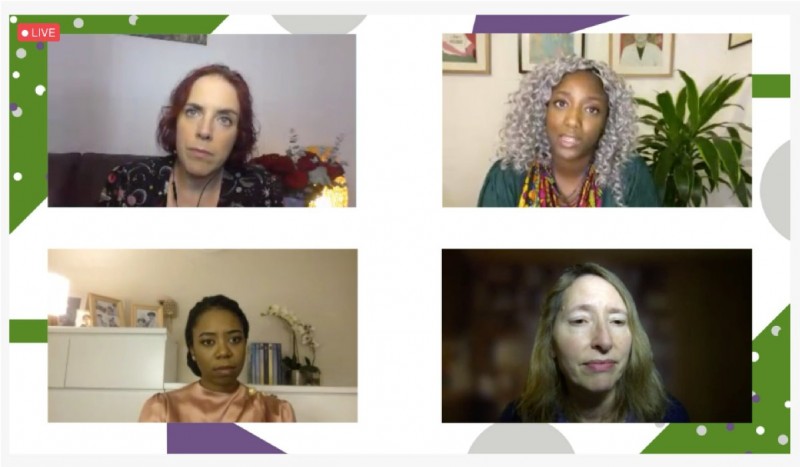
The panel shared some ways to translate discourse into action. “No-one else has the same personal circle as you. If you can make a small indent in the few people that you know, and everyone collectively does that, then everyone can play a part [in dismantling systemic racism],” Lakechia said.
“If you don’t see anyone who looks like you, you’re not going to belong. We need to bend-over backwards to get diversity into everything that we do,” Jenny shared.
“Every decision, every action, every interaction, is an opportunity for us to let other people know that they belong,” Anne-Marie said. “If you don’t intentionally include, you unintentionally exclude.”
Other themes explored in the discussion included mentorship, in particular the notion of having a personality alignment with a mentor as opposed to them looking like you, and belonging. Raring to get involved, attendees posed thought-provoking questions to the panel, from how to improve the rewards system in academia, to how we can decolonise maths and computing education. But the final question, asking the panellists for one piece of advice for the next generation of girls entering STEM, left everyone with some motivational pearls of wisdom.
“Don’t ever let anyone tell you that you won’t succeed,” Jenny said; “Your mind is bigger than you anticipate, just tap into it,” Lakechia replied; “If you want to change the world, join us, and if you’re an evil genius, then you can also join us,” Anne-Marie concluded.
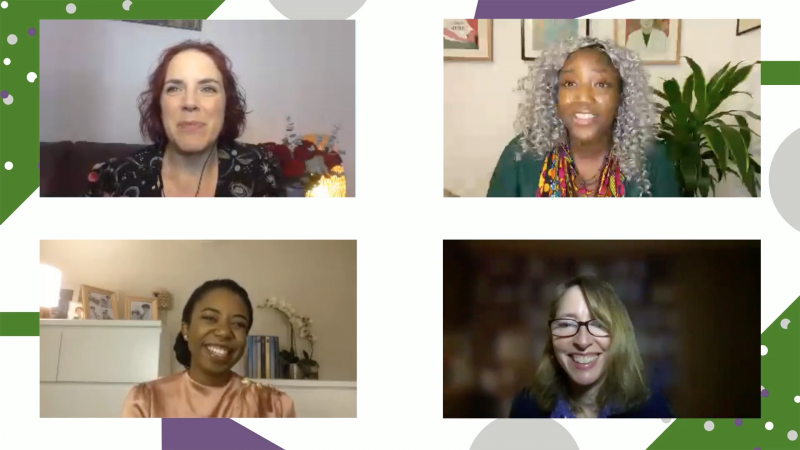
After the inspirational panel discussion, the mic was passed to the maths and computing 2018 award holders and recipients for their video premiere. Just like the first film, this was full to the brim of messages of support and desires for the future.
“I don’t think there’s anything I want to change about women in science, I think women in science are fantastic” 2018 awardee Dr Eugénie Hunsicker of Loughborough University said. “It is the environment, everything else, that needs changing, and this is certainly not a woman’s problem” Dr Hunsicker’s nominee, Professor Sara Lombardo also of Loughborough University continued.
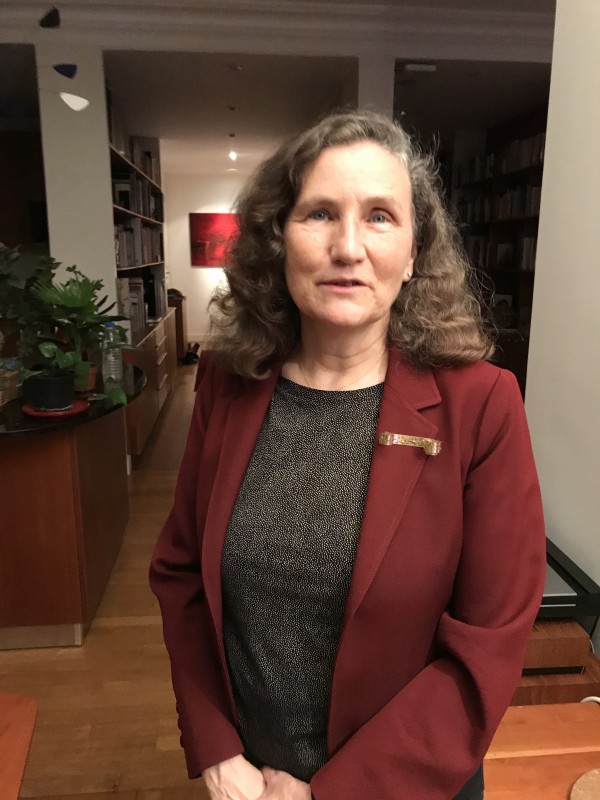
“It was a complete surprise [to receive the award from Dr Tereza Neocleous (University of Glasgow)]. Perhaps she thought that my diverse activities in teaching and research should be recognised more” 2020 awardee Dr Juhyun Park of Lancaster University and ENSIIE said.
“I may want the lights to switch on when I get to the front door, but I certainly don’t want to be stood on the doorstep in the rain whilst the software switches on the burglar alarm instead. Professor Nobuko Yoshida (Imperial College London) has developed important theoretical ideas that underpin the development of software that correctly interacts with other systems,” 2018 awardee Professor Ursula Martin of the University of Oxford explained.
One quote which resonated with attendees and panellists came from 2018 awardee Dr Vicky Neale of the University of Oxford. “One thing that I’m looking forward to seeing change about women in mathematics is that when there is a gender balance, we will stop noticing women in mathematics,” Vicky said. “I would like to just be a person in mathematics.”
With only one canapé left, Kat brought the evening to a close. But this was just the beginning of the reflection and action by those in the Suffrage Science network, particularly for the 2020 awardees. As the scheme celebrates its tenth anniversary next year, we look forward to another decade of showcasing modern role models in science.
Watch the full recording of the event below:
Special thanks to the team at Amplitude Event Solutions, L’Oréal for their long-standing support of the scheme, the 2018 and 2020 awardees in ‘life sciences’ and ‘maths and computing’, video producer Kirstin von Glasow and her team, and to Professor Dame Amanda Fisher and Vivienne Parry, the pioneers of the Suffrage Science awards scheme.